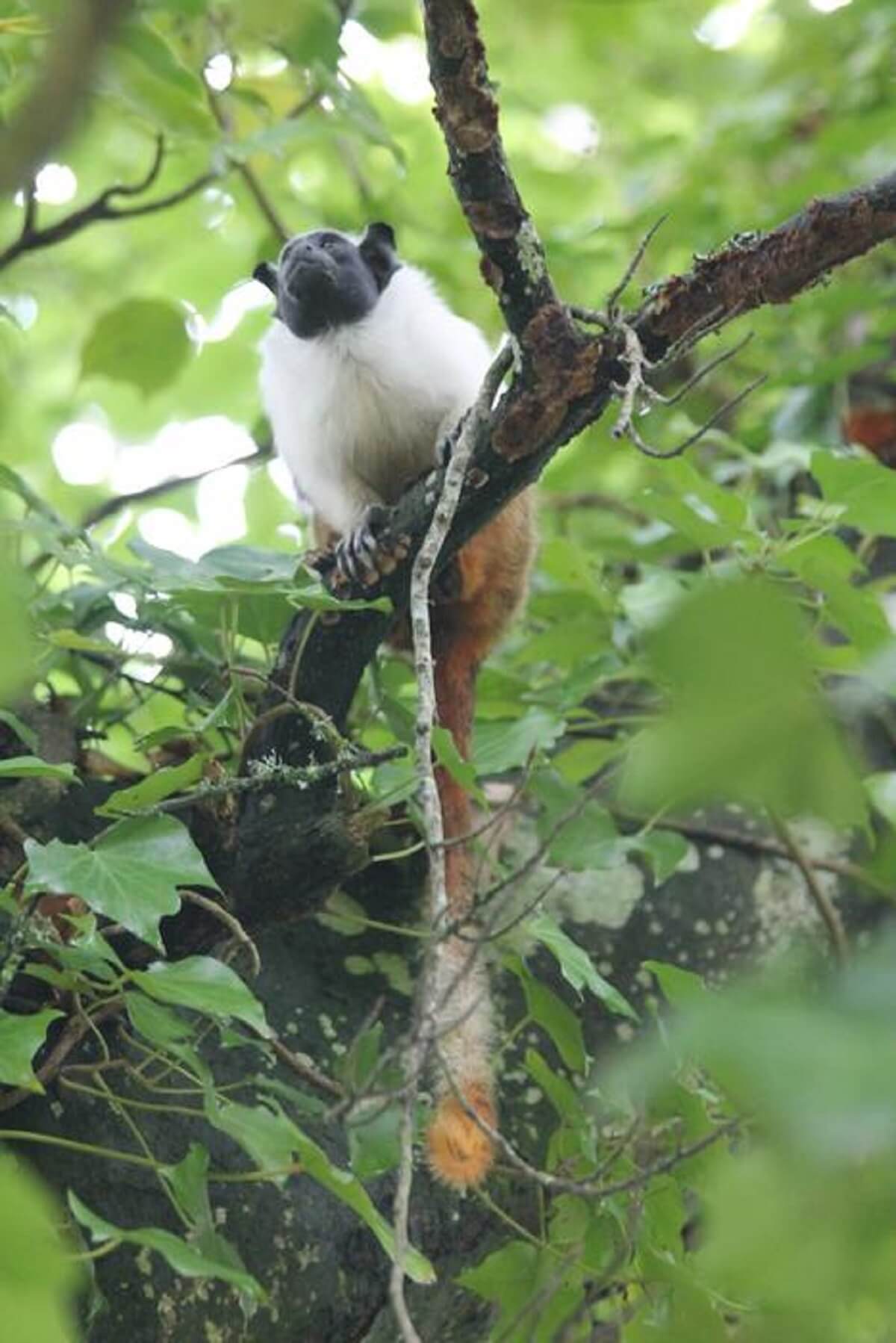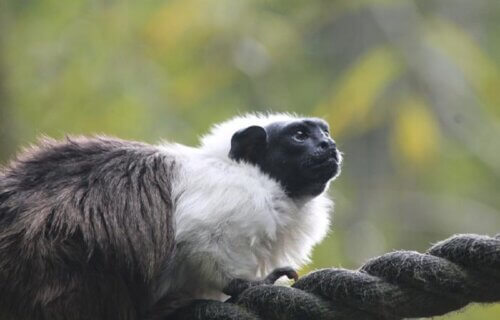MANAUS, Brazil — Pied tamarins, a critically endangered monkey species in Brazil, are adapting to the noise pollution created by humans in a very unique way — they’re literally causing a stink about the situation. Researchers have found that the monkeys are increasing their use of scent markings for communication. The study is an eye-opener into how human activities are affecting wildlife and their survival tactics.
The study, a joint effort by researchers from Anglia Ruskin University (ARU) in the United Kingdom and Universidade Federal do Amazonas in Brazil, focuses on the behavior of nine separate groups of pied tamarins in central Brazil. Specifically, the research monitored the monkeys around the city of Manaus, where the encroachment of urban areas has pushed these creatures to small patches of forest. The International Union for Conservation of Nature (IUCN) lists the species as “critically endangered.”
“Many species depend on acoustic signals to communicate with other members of the same species about essential information such as foraging, mate attraction, predators, and territorial defense,” says lead author Doctor Tainara Sobroza of Universidade Federal do Amazonas, in a university release. “Pied tamarins produce long calls which are used for group cohesion, intergroup communication, and to mark their territory.”

The most common source of human-made noise affecting the tamarins was road traffic, according to the study. However, other sources like aircraft, park visitors, and even military activities were also cited as contributing factors. This noise is referred to as “anthropogenic noise,” which essentially means noise pollution caused by human activities. It’s a hurdle for the tamarins because communication is vital for their well-being and survival, the researchers add.
Their study finds that as the decibel levels increased, the monkeys upped their use of scent markings. These markings serve various purposes including signaling reproductive status and marking territory.
“The increased use of scent marking by pied tamarins is likely to be a flexible response towards this environmental change,” says co-author Associate Professor Jacob Dunn, of ARU. “An advantage of scent marking over vocal communication is that it allows information to be passed on over a number of days.”
However, the team also points out a downside to this adaptation. Unlike vocal calls, scent markings don’t travel long distances.
“As the pied tamarins’ range is becoming more fragmented and groups are becoming more isolated, this could potentially have a detrimental impact on a species which is already critically endangered,” Prof. Dunn warns.
This research sheds light on the immediate and potentially long-term consequences of human activities on wildlife, underscoring the need for more mindful urban expansion and conservation efforts.
The findings are published in the journal Ethology Ecology & Evolution.
South West News Service writer Stephen Beech contributed to this report.

